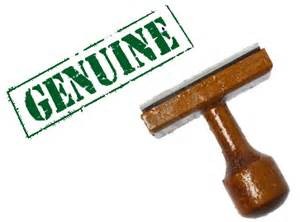 The main difference is the more you practice, the more authentic you will be and the closer the “role” is to the true you the more genuine you seem. Actors practice WHAT they say, HOW they say it and their BODY language. You need to do the same to prepare for an interview.
The main difference is the more you practice, the more authentic you will be and the closer the “role” is to the true you the more genuine you seem. Actors practice WHAT they say, HOW they say it and their BODY language. You need to do the same to prepare for an interview.
Think about the sales people you have not liked dealing with… they seem fake. The good sales people plan out and practice their elevator speech / pitch before going on sales calls. They believe in what they are saying / selling. If someone is really good you do not even know you are being sold. You need to get to the same place in your interviewing skills.
If you want to get better it is going to get uncomfortable. I like the saying “The more you sweat in training, the less you bleed in battle.” Would you rather feel the fool while recording your answers or when you are across a desk from a hiring manager? Ask your significant other to play the role of the hiring manager and give you feedback.
A friend of mine in sales said that he had his wife get in their bedroom. He would call her and pitch her like she was a customer. He said it was HORRIBLE but it was the best training he did.
This is another reason that informational interviews are so useful. They get you accustomed to interview settings without actually being in an interview. You are able to practice your professional communication skills in a less stressful environment.
So you need to ask yourself; ARE YOU WILLING TO DO WHAT IT TAKES? Once you have identified what interviewing skills you need to work on are you willing to improve? Many people like the idea of running a marathon as a goal but they are unwilling to get up every morning and train.
You have two choices… do something about it or stop complaining. There is never a reason for whining.
Al